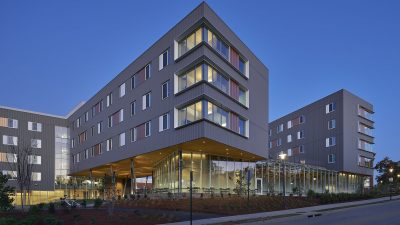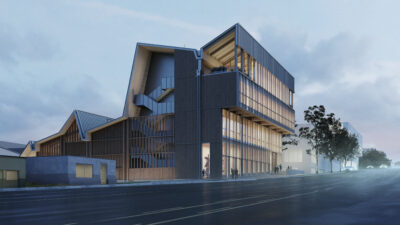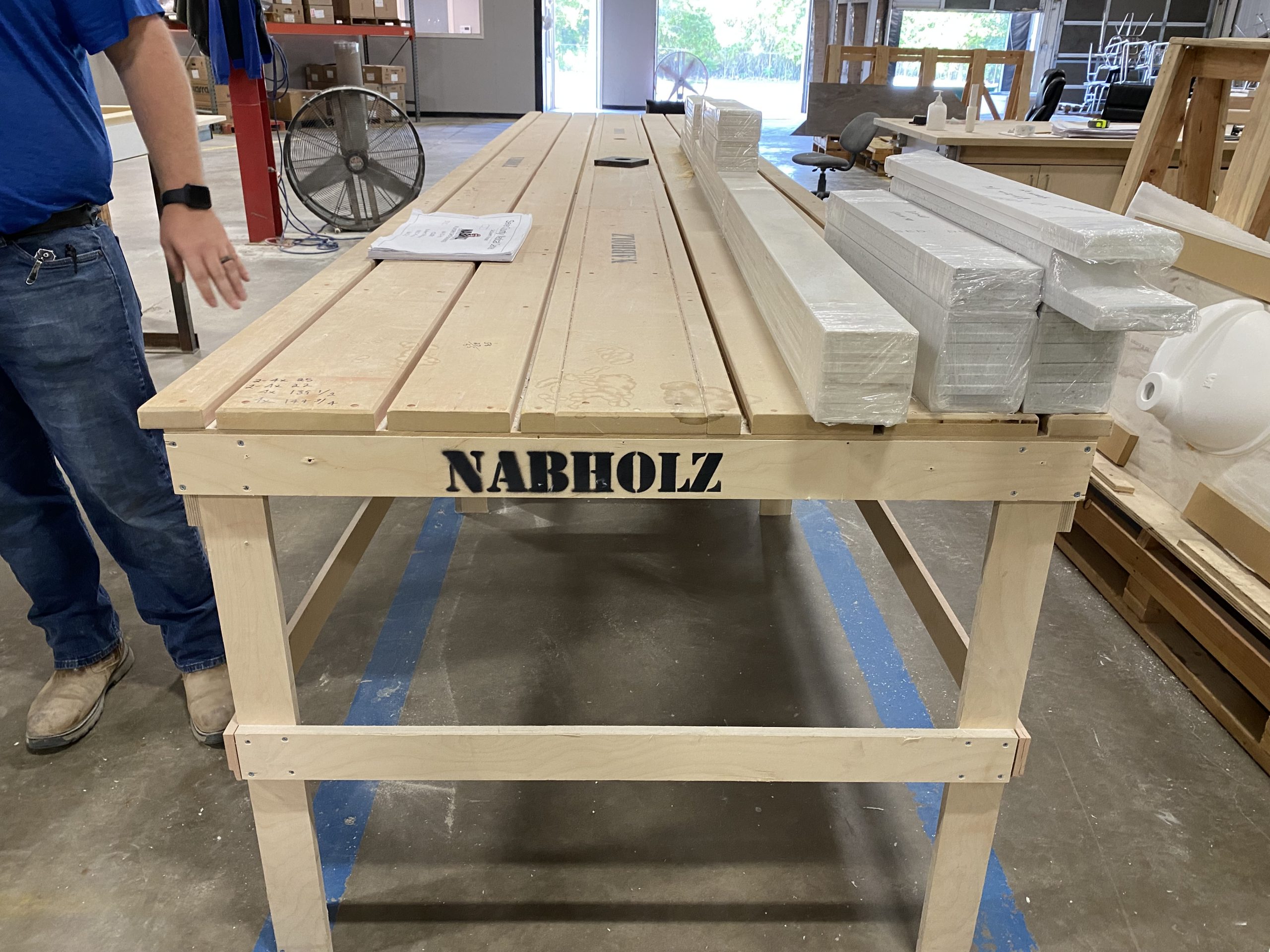
Nabholz’ Millshop has become one of the region’s premier fabricators of custom cabinets, solid-surface countertops, and architectural millwork. To allow them to increase production, the crew there has focused on lean practices and efficient workflows. When they moved into a new fabrication facility in Conway earlier this year, manager Jonathan Davis and production manager Hunter Martin spent time with their team planning the shop floor layout and workstations.
Their improvements to workflow began with investing in a state-of-the-art CNC router to work in tandem with their existing machine. This innovative equipment includes a cutting head capable of swapping between ten router bits without stopping work and can process 70% more sheets of material daily, significantly increasing output potential.
From there, solid surface projects flow to the south end of the shop, and architectural millwork flows to the north for production. Parts that come off the CNC routers are labeled and loaded onto wheeled carts, streamlining the transportation of materials between the cutting table and workstations. In addition, the labels on the parts correspond to digital shop drawings, so cabinetmakers always have current and accurate information.
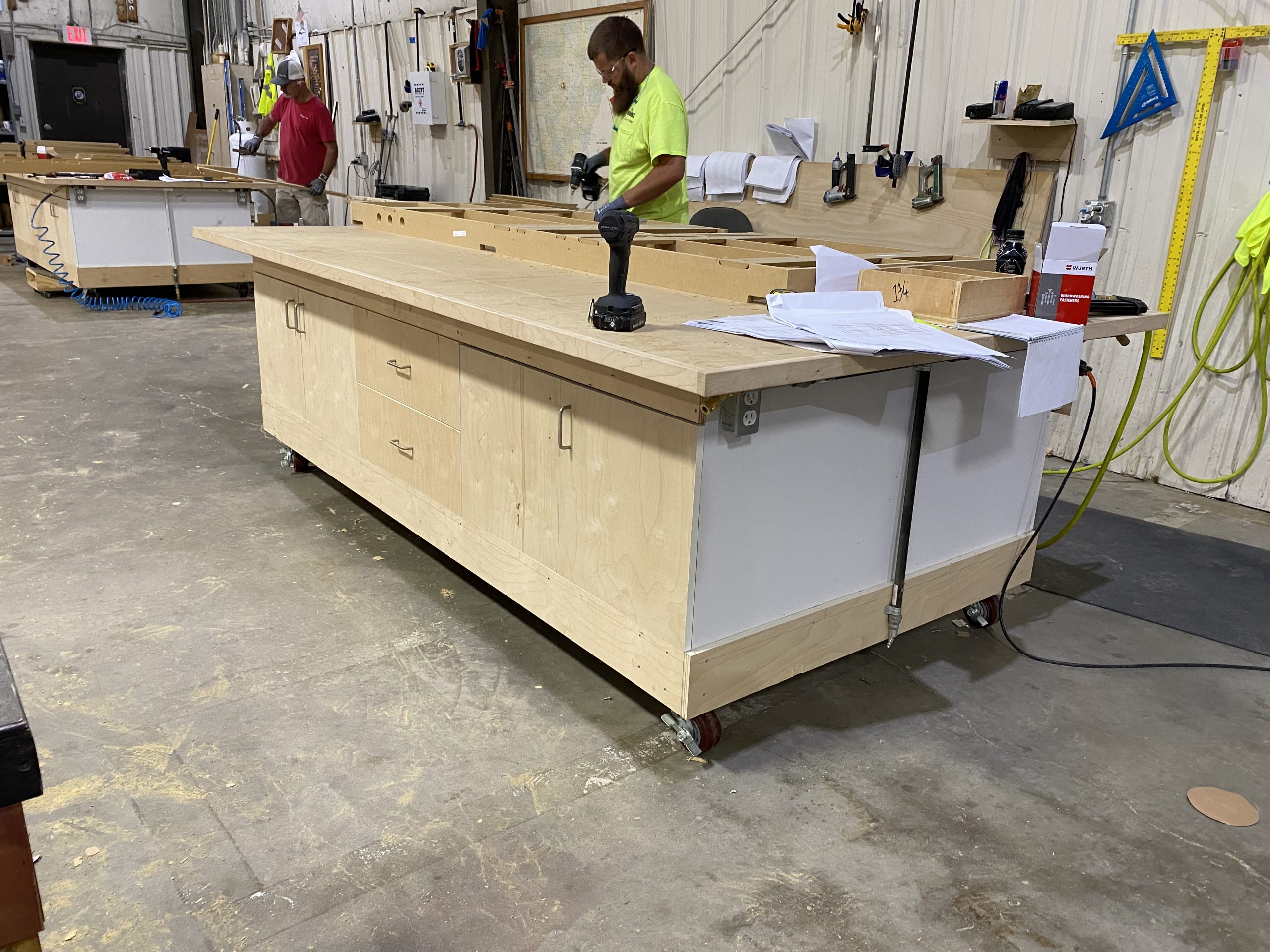
Of course, when your employees build custom cabinets for a living, designing and constructing personalized workstations is the obvious choice. Working with free reign, the team members created a workstation for solid surface backsplashes that virtually eliminates the need for time-consuming clamps while shaping, sanding, and gluing pieces. Our cabinetmakers also custom-built workstations for architectural millwork designed so tools, electricity, and compressed air are at their fingertips. Furthermore, with the workstations on wheels, crews can reconfigure the production floor very quickly to meet the specific needs of any project that comes through the door.
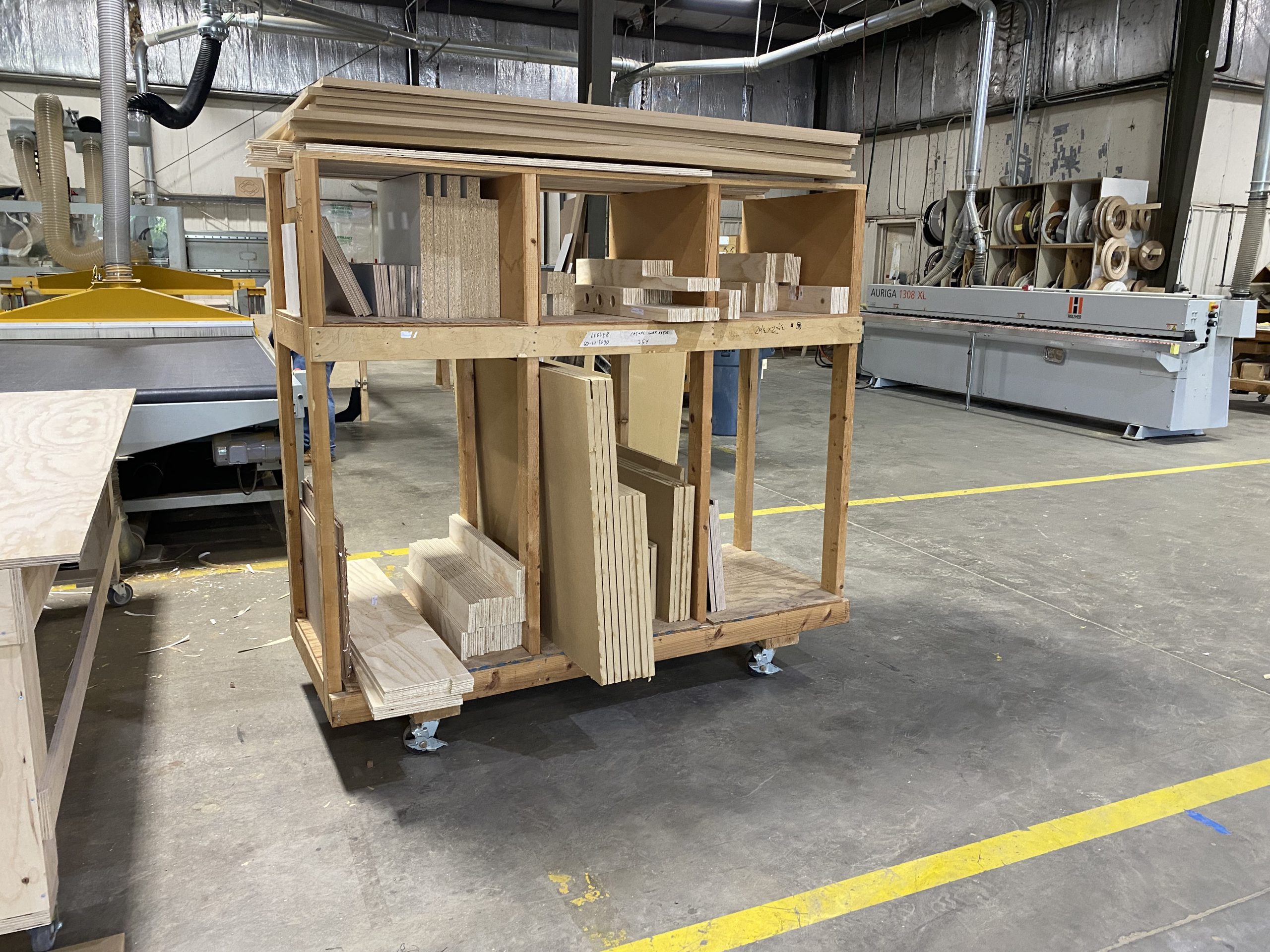
The team also decided that the shop would need to be kept incredibly clean and organized to run at peak efficiency. Thanks to built-in vacuum systems and trash containers on wheels, they can more easily collect debris and keep the floor clear of trash while eliminating time and extra cleaning materials. The millshop employees also intentionally organized tools and materials to ensure they are visible and within easy reach, eliminating wasted motion on tasks such as walking around to find clamps and time spent inventorying.
Davis and Martin promote continuous improvement, and their teams constantly look for better ways to build. The results are paying off, and not just in increased efficiency. They’ve also been able to up prefabrication processes. For example, they’ve now prefabricated patient headwall units for many Nabholz hospital projects in the new shop, as it offers a safer, more controlled environment than the job site.
